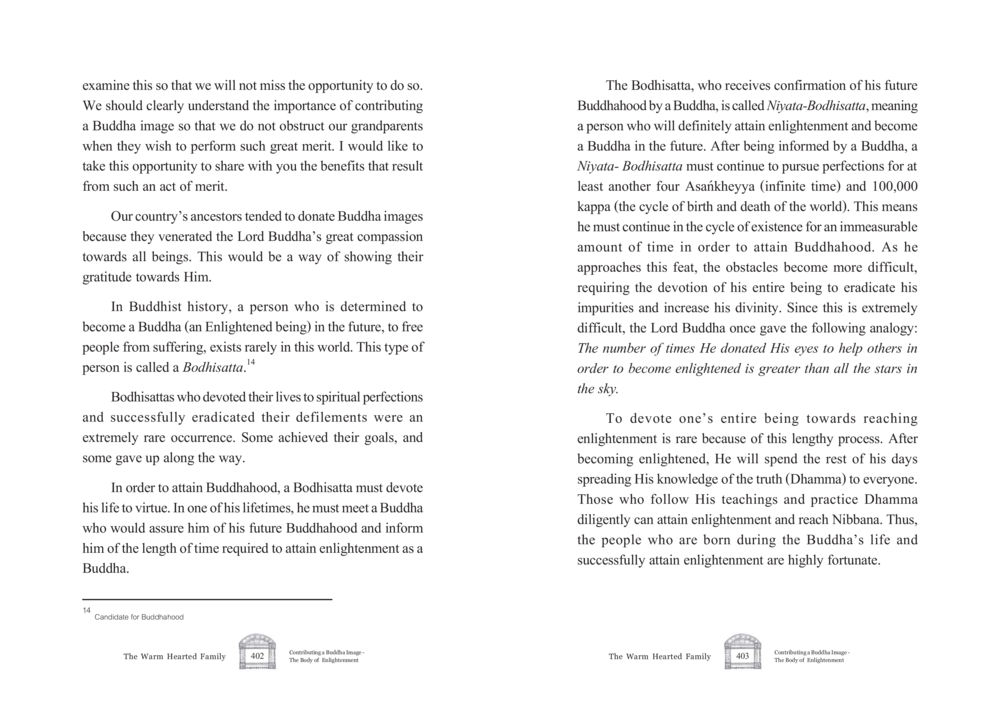The Significance of Donating Buddha Images : หน้า 202/207
The Warm Hearted Family : หน้า 202/207 Explore the importance of contributing Buddha images and the merits associated with this act in Buddhism.
0 ครั้ง

สรุปเนื้อหา
This text emphasizes the importance of donating Buddha images as a means of showing gratitude towards the Lord Buddha and contributing to spiritual merit. It discusses the concept of Bodhisattas, individuals destined for enlightenment who dedicate their lives to spiritual perfections. A special mention is given to Niyata-Bodhisattas, who are assured of their future Buddha status and must continue their pursuit of enlightenment through immense dedication over vast periods. The text highlights the rarity of such devout individuals and the challenges they face in eradicating impurities. Ultimately, the act of following the teachings of the Buddha and practicing Dhamma can lead to enlightenment and Nibbana, making those who achieve this during the Buddha's life incredibly fortunate. Visit dmc.tv for more insights.
หัวข้อประเด็น
-Importance of donation
-Ancestors and Buddha images
-Bodhisatta concept
-Niyata-Bodhisatta explanation
-Spiritual perfection challenges
-Enlightenment journey
-Practicing Dhamma for Nibbana
ข้อความต้นฉบับในหน้า
หน้าหนังสือทั้งหมด















































































































































































































